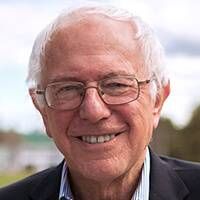Comparing the Presidential Candidates' Plans for Retiree Health Costs
What Trump, Clinton and Sanders have (and haven't) said
How would Donald Trump, Hillary Clinton and Bernie Sanders deal with retiree health care costs if they’re elected? It’s a big deal: The mutual fund giant Fidelity estimates that a retired couple, both aged 65, can expect to spend an estimated $245,000 on their health care, not including any long-term care expenses.
Taking the presidential candidates’ statements and their campaign literature seriously, the implications for boomers are potentially HUGE (apologies to Trump and Darrell Hammond) no matter who wins.
In a nutshell, Trump’s plans are to stay the course on Medicare but are vague on health coverage and costs for those younger than 65 (the current enrollment date for Medicare); Sanders’ plans are revolutionary and Clinton wants to lower health costs for those who aren’t eligible for Medicare and extend coverage to people in their 50s and early 60s.
What Obamacare Did
First, some background.
The Affordable Care Act, the Obama Administration’s signature health care legislation, kept the primacy of America’s employer-based health insurance system. It also built in incentives to slow the rate of growth in Medicare spending while shoring up Medicare’s finances by raising payroll tax rates on high earners and slapping a new tax on their investment income. The law also broadened Medicaid coverage to include more low-income families (although a number of conservative-led states rejected the Medicaid expansion option).
Before Obamacare, the individual health insurance market offered older customers sparse coverage at a high cost. Insurers took pre-existing health conditions into account when pricing premiums or denied coverage for people with them; by our 50s, most of us have at least one or more health conditions. Obamacare guaranteed coverage, banned denials based on pre-existing conditions and imposed limits on out-of-pocket expenses.
For many boomers, the big question is whether or not the candidates will improve on the gains achieved by Obamacare. Let’s review the bidding.

Donald Trump's Proposals
Trump, the Republican presumptive nominee, has been relatively consistent in saying he would leave Medicare alone. But Trump has also called for the complete repeal of Obamacare, reflecting the standard Republican mantra of “repeal and replace.” He hasn’t yet provided extensive details on what would replace it.
What Trump has said is that he wants to: modify the law to allow the sale of health insurance across state lines; let individuals fully deduct health insurance premium payments on their tax returns; encourage Health Savings Accounts; require price transparency from health care providers; turn Medicaid into a system of federal block grants given to the states and remove barriers to consumers buying prescription drugs overseas.
“Calling it a first draft is being generous,” says Tom Miller, health care expert at the nonpartisan American Enterprise Institute.
Problem is, getting rid of Obamacare without a clear replacement unleashes enormous uncertainty for people in their 50s and 60s (and for everyone else). For instance, Trump has said he’d like to keep the ban on pre-existing conditions, but that clause would disappear with repeal. So boomers who don’t get their health insurance through a group plan at work and who aren’t in perfect health would take a financial hit.
The multiple unknowns attached to “repeal and replace” are reflected in Modern Healthcare’s latest CEO Power Panel survey. The 110 CEOs from hospitals, insurers, physician groups, trade associations and other not-for-profit advocacy groups, Modern Healthcare says, “overwhelmingly reject that idea, in large part because they are unimpressed with the GOP’s attempts to articulate what it would replace it with.”

Hillary Clinton's Proposals
Clinton’s health care ideas are the most nuanced of the three candidates; she has been involved in the issue for much of her political career.
Like Trump, she would stay the course on Medicare. But unlike Trump and Sanders, she wants to improve Obamacare, putting greater emphasis on reducing premiums and out-of-pocket costs. For instance, Clinton has proposed a tax credit of up to $5,000 per family to offset a portion of out-of-pocket and premium costs above 5 percent of income.
“Most of her proposals have been to plug in holes without fundamentally challenging our mix of private and-government system” says Miller.
Clinton also recently tossed out an intriguing health care reform proposal that would affect boomers specifically: She said the government should let people as young as 50 buy into Medicare. The so-called public option would compete for business with private insurance plans sold on the Obamacare exchanges.
“Clinton is trying to make sure the population above 50 is covered,” says Stephen Parente, director of the Medical Industry Leadership Institute at the University of Minnesota.
Details on how she’d extend Medicare to people in their 50s and early 60s are vague, however. For instance: How much of a subsidy would the government provide the younger cohort? When the public option was debated during the legislative battles over Obamacare, a number of initiatives offered small employers the opportunity of moving their workers into the plan. (The public option died on Capitol Hill in 2010.)
“She hasn’t specified how she wants to do it,” says Linda Blumberg, senior fellow in the Health Policy Center at the nonpartisan Urban Institute. “There is a lot of interest in the idea of a public option or Medicare option, but there’s also a lot to think through.”

Bernie Sanders' Proposals
Sanders not only offers the most sweeping plan — Medicare-for-All — but what appears to be the most favorable proposal for boomers, at least at first glance.
“He has been putting out more details,” says Parente. “He has proposed collecting new taxes to pay for it. Give him credit for it.”
Sanders would replace the current health care system with a federally administered single-payer universal health care program, effectively nationalizing one-sixth of the economy. Under Sanders’ plan, there’d be no more co-pays, deductibles or network vs. out-of-network payments to worry about. His plan would also “cover the entire continuum of health care,” including long-term care — today, Medicare generally doesn’t cover long-term care expenses and Medicaid does, but only for the very poor.
The big question: How much would it cost taxpayers to pick up the single-payer tab?
The Urban Institute’s Health Policy Center estimates federal health expenditures would rise by some $32 trillion (or 233 percent) between 2017 and 2026, mostly due to the federal government absorbing costs currently met by state and local governments, employers and households. Sanders’ revenue proposals would raise an estimated $15.3 trillion over that period, according to the Urban Institute/Brookings Institution’s Tax Policy Center —$16.6 trillion shy.
Although the Sanders campaign disputes that estimate, it’s likely that taxes would need to rise considerably more than Sanders predicts or the federal government would have to borrow a lot more.
“We don’t think he has provided sources of funding anywhere sufficient to cover the cost,” says Blumberg.
Where the Candidates Agree
One striking area of agreement among the three candidates that will affect health costs in retirement: Prescription drug prices. Trump, Clinton and Sanders agree that prescription drugs cost too much; the U.S. pays about 40 percent more for them than other countries.
All the candidates would let Medicare negotiate with drugmakers, which they can’t today. They’d also allow consumers to import drugs from countries with approved safety standards, such as Canada.
Early in the 2016 presidential campaign, it appeared that health care reform wouldn’t play much of a role in the battle for votes, certainly not like it did in 2008 and 2012. National security, terrorism, trade and other issues pushed health care to the sidelines. However, health care is again becoming a major issue, especially in the fight between Sanders and Clinton for the Democratic nomination.
The candidates all know that when older voters go to the ballot booth, their plans for reining in health care costs will be a key consideration.


